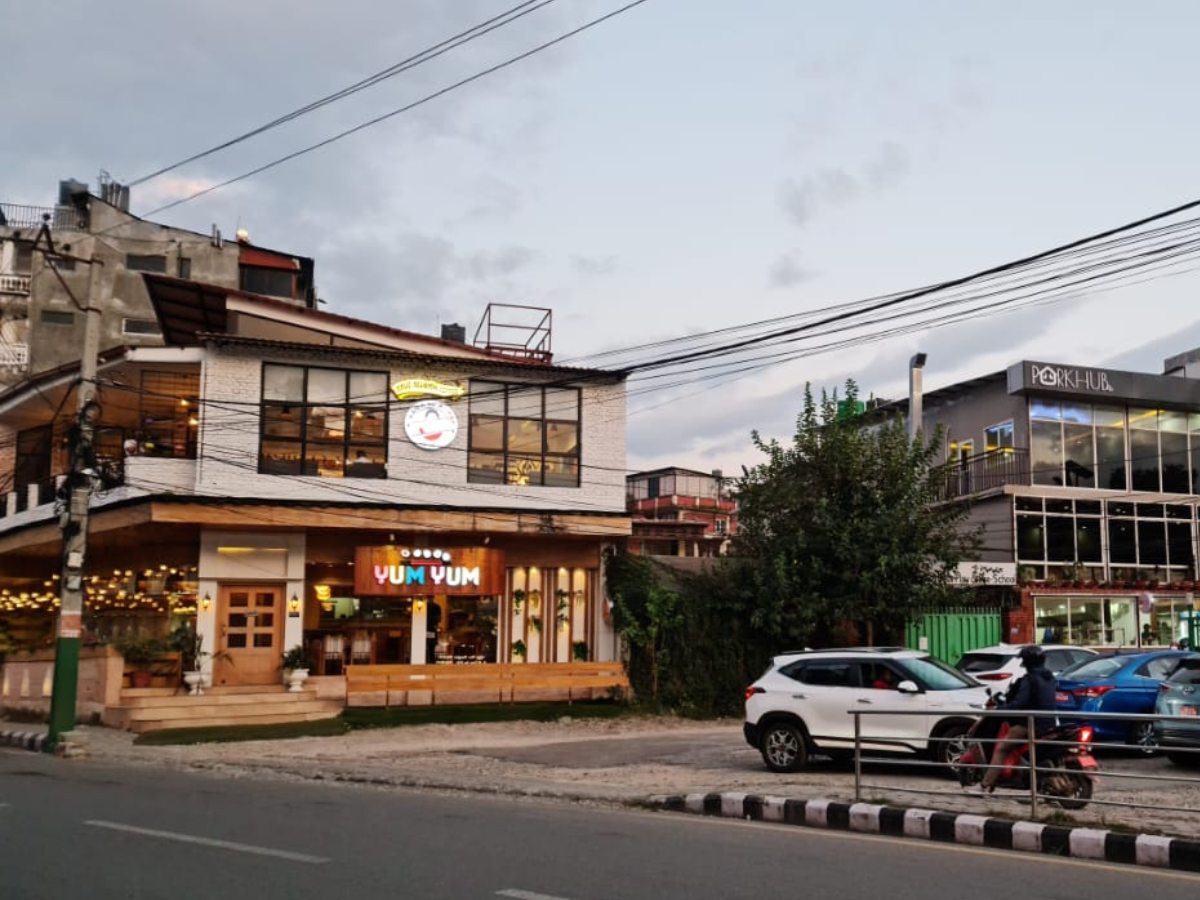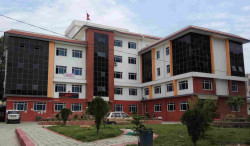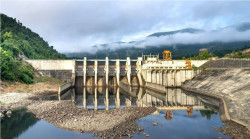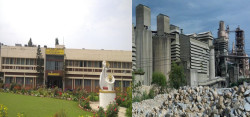Industry
1661234025.png)
Growing up in the Jhamsikhel area, in Lalitpur, I was used to the silence and calmness of living in a sparsely-populated residential area. As little children, the only time we heard the traffic noise was during the school and office rush hours of morning and evening.
But in the past decade or so, things have changed a lot. My neighbourhood has transformed a lot; I quite don’t know whether it is for the better or worse. Nowadays I feel like I’m living in a completely different neighbourhood – and in a completely different city.
Informally called “Jhamel” by party-goers tired of visiting Thamel in Kathmandu, several kilometres north of Lalitpur, Jhamsikhel’s landscape has changed a lot – from a quiet neighbourhood to a bustling fine-dining and party area - in recent years.
Bars and restaurants serving varied world cuisines set came into the picture. As did shops selling alcohol, groceries, clothing, and bakeries.
To my surprise, I can buy everything I need in Jhamel; I don’t need to step out of the area for anything.
And Jhamel was not built in a day.

“Jhamel was not developed overnight,” said Sadan Thapa Magar, chairperson of Jhamsikhel Youth Club. “While we used to have a lot of greenery and cleanliness, security became a focus after restaurants and bars started opening.”
As more and more people move to this area, Jhamel appears to be growing by the day, with new buildings and shops opening every other month. The noticeable migration of people to the area can be traced back to 2008, according to Magar.
Independent residential dwellings and housing societies stepped foot first, which led to locals shifting to Jhamsikhel. It was an area liked by expatriates working in foreign missions or international organisations.
“Foreigners already liked this area, as there was the British School here,” he said.
Mathias Khumpi who has been a helper at the 27-year-old Our Lady of Assumption Church for the past 10 years says that before the area had only small narrow roads. “Now it is developing especially because of the road expansion that is going on,” he said.
In Jhamsikhel, there were only two to three restaurants at the start. They date back to 2001 or earlier, says Magar. But soon the entire area started lining up with eating joints offering varied cuisines and bars offering relaxation spaces for the younger generation.
If you are craving pizza, or Korean barbeque, or Chinese food, Jhamel has it all on its menu.
1661234115.png)
Including Nepali varities.
“We get food from all over Nepal here too like Mustang potatoes, Marsi rice, Jumla beans, Lapsi (hog plum) pickles and more,” Magar said. As one can see, the groceries in the area are filled with international as well as local foodstuff.
Jhamel-watchers have noticed a pattern in the process of its evolution. Arniko Rajbhandari, the president of the Restaurant and Bar Association of Nepal (REBAN), said eating joints in Nepal tend to open in clusters.
“One restaurant takes the lead and opens up in the area and creates the ambience,” he said. “And then other restaurants follow suit where all of them complement each other and move ahead.”
And this is what has also happened in the Jhamsikhel area. There are close to 80 to 90 restaurants in the area, according to him.
One such restaurant that opened its doors in 2016 in Jhamsikhel is Evoke Café & Bistro.
Sushant Thapa initially opened up Evoke with the idea of running a small coffee shop. Thus, he chose the Jhamsikhel area over any other parts of the valley. But over the years it became a proper restaurant and bar.
“When I opened it, I didn’t expect it to be this busy but it turned out well,” he said.
Their customer base consisted of people aged between 25- 40 years. But the pandemic has changed the type of customers. “Between 35-40 percent of our customers were foreigners but that has gone down to 20-25%. Locals have taken their place,” Thapa said.
Restaurants and bars in this area are also known for their live music, which attracts tourists and locals to hear artists sing English, Nepali and Hindi music. One of the most popular among the party-goers is Moksh Restaurant and Bar which gives local bands and independent artists an opportunity to showcase their talents every Tuesday and Friday.
Long back, there were only two to three shops that sold household groceries. For vegetables, we always had to cross the bridge towards Kathmandu to fulfil our needs.
But there was always one trip that didn’t require much travelling and it was my favourite – buying baked goods from Herman Bakery. However, that has also changed since more bakeries opened in the area.
1661233902.png)
This time when I walked in for an interview, the smell of freshly baked foods took me back to my childhood years of convincing my mom to buy me an additional cookie.
I was surprised to find that the structure had not changed. The same beige exteriors with the interior shelves filled with cookies, loaves of bread, cakes and more.
Herman Bakery started 40 years ago and is currently being operated by a member of the family’s third generation, Rajeev KC. He has been managing the bakery for the past 10 years and says that the area was previously residential, but now has more restaurants and offices.
“Restaurants have increased by around 75 percent in the last 10 years. It is becoming more like Thamel,” he said.
Sushant Thapa believes that this area is going to develop further in the year to come. “It has a lot of potential and it is doing quite well also,” he added.
On the other hand, Magar said that this area has become like Europe. “It started in a small area but now expanded to Sanepa, Dhobhighat, Bhanimandal and Kupondole,” he said.
Being a Jhamsikhel area resident, I think he’s right – but only partially. In order to be deemed a world-class neighbourhood, Jhamel still needs to improve on several fronts, including a reduction in loudspeaker- and –horn-led noise pollution and other irritants.






